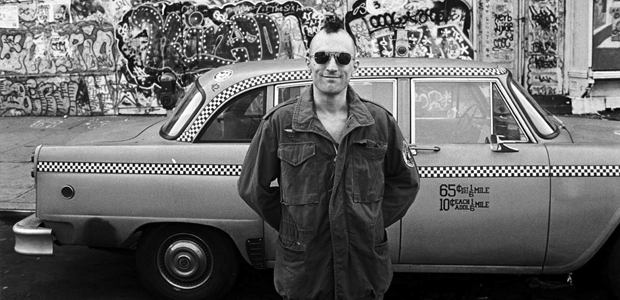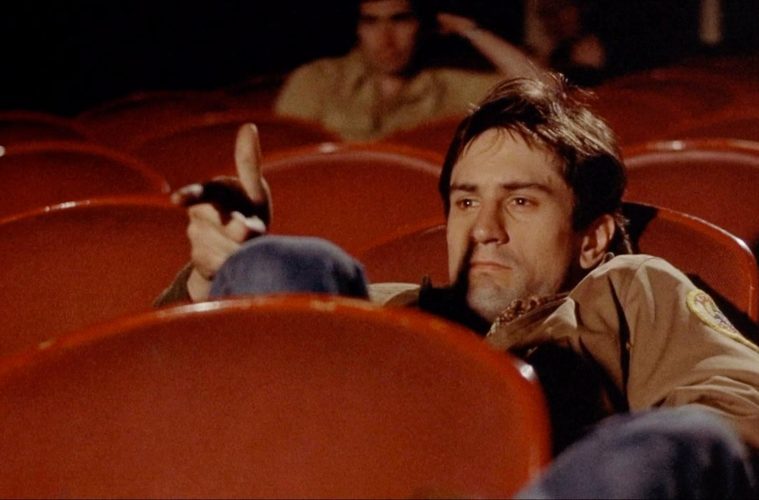
Dailies is a round-up of essential film writing, news bits, videos, and other highlights from across the Internet. If you’d like to submit a piece for consideration, get in touch with us in the comments below or on Twitter at @TheFilmStage.
Martin McDonagh‘s Three Billboards Outside Ebbing, Missouri will begin shooting in April and will be distributed by Fox Searchlight, Deadline reports.
Watch a video essay on how Mad Max: Fury Road effectively uses long shots to convey its story:
Movie Mezzanine‘s Jaime N. Christley reflects on Taxi Driver as it turns 40:
A year before the word was spoken by Obi-Wan Kenobi (Alec Guinness), “force” held Travis Bickle (Robert De Niro) transfixed. More accurately, “true force,” followed by a line about “All the king’s horses and all the king’s men,” incoherent ramblings that don’t amount to anything presentable, but exhibit vividly enough the weather systems of a disturbed mind, the color and temperature of his obsessions, the texture of the imprint he’d care to leave upon the world. “Force” appears on the first page of Paul Schrader’s script, a keyword in his description of Bickle. The Vietnam veteran who takes up driving for vague reasons (“I can’t sleep nights”) is in many ways a fantasy, and very possibly a projection of Schrader’s inner mind or self-image, at least at some point during his early Los Angeles days, when he lived a Bickle-esque life himself. It’s important for Schrader to get these ideas down on paper right off the bat, that Bickle is lonely, hollow-eyed, lean and hungry, smells of sex (“Sick sex, repressed sex, lonely sex, but sex nonetheless”), but is characterized most of all by “force,” the all-purpose, universal adapter of fantasies that speaks to nothing more complicated than our desire to acquire agency in a world of open-air hostility, whether it’s by money, works good or ill, sex, violence, or speech. Bickle’s Hamlet longs only “to be,” and, in the blood-saturated climax, he does. He is.
Listen to Kent Jones and more discuss Hail, Caesar! on the latest Film Comment podcast:
The Guardian‘s Nicholas Barber on how Disney and Marvel killed happy ever afters:
It’s not just Han and Leia who aren’t being allowed to live happily ever after, either. More and more film franchises are spoiling their heroes’ retirements, thus snatching away the simple pleasure we once got from picturing their pipe-and-slippers contentment. Take Creed, for example. Sylvester Stallone had wrapped up the story of his punch-drunk alter ego numerous times over the decades, but 2006’s Rocky Balboa seemed to be the real deal. Rocky was finally at peace. Or so we assumed. But Ryan Coogler’s torch-passing drama yanks the champ away from his cosy neighbourhood restaurant, inflicts cancer on him, and forces him to watch as his protegé embarks on a series of fights as bloodily punishing as his own. Both Rocky and Han Solo must have been tempted to quote Michael Corleone in The Godfather: Part III: “Just when I thought I was out, they pull me back in.”
Watch Criterion’s video on the signature themes and devices of Jean-Luc Godard:
Flavorwire‘s Jason Bailey on 10 movie couples who definitely didn’t make it:
Not to alarm you or send you stumbling too quickly away from our site to ProFlowers or anything, but Valentine’s Day is Sunday. And there’s a fairly good chance that at some point over the big weekend, you and your S.O. will sit down to enjoy a romantically-inclined motion picture, putting your own loverly entanglements on hold for 90-120 minutes to invest your emotions and interests in someone else’s. But be careful; just because it ends with a Happily Ever After doesn’t mean the couple in question would actually have one.
Watch a video essay on the films of Jane Birkin:

